Opening Keynote Address
Associate Professor Te Maire Tau, Ngāi Tahu Research Centre, Aotearoa New Zealand
“What a tribal economy will be and how we will build it”
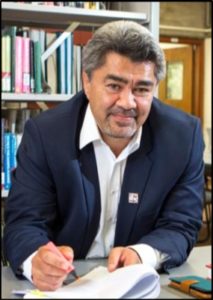
Dr Te Maire Tau is the Upoko (head) of Ngāi Tūāhuriri, whose home is the Tuahiwi Marae near Kaiapoi, just north of Christchurch. Dr Tau has also been the Director of the Ngāi Tahu Research Centre at the University of Canterbury since 2011. He is recognised as one of New Zealand’s great tribal historians; his PhD thesis on Ngā Pikitūroa o Ngāi Tahu: The Oral Traditions of Ngāi Tahu was published by Otago University Press in 2003. Te Maire has developed relationships with indigenous research centres around the world, and has been a key person in the bicultural rebuild of Christchurch after the devastating earthquakes of 2011.
[ back to top ]
Plenary: First Nations Economies
Professor Michelle Thompson-Fawcett, Department of Geography, University of Otago, Aotearoa New Zealand
“We are Carrying our Weight of Expectations”: Indigenous-led Urban Property Development

Dr Michelle Thompson-Fawcett (Ngāti Whātua) is Professor and the Head of the Department of Geography at the University of Otago. She has over 30 years’ experience in planning practice and university teaching and research. Michelle has successfully forged a globally relevant research programme intent on decolonising the disciplines of geography and planning. She draws on Indigenous world views to challenge the possibilities for sustainable urban planning and development. She is at the forefront internationally for valuing Indigenous knowledge and critiquing theories of power and space. Her research is acknowledged for its originality, depth of analysis and transformative potential for society. Her expertise has been widely recognised leading to many overseas collaborations in the UK, Scandinavia, and Canada. She has produced more than 130 research outputs and been Principal Investigator on five external applied contracts and four multi-year external agency grants, including highly competitive international grants. Michelle is co-author of “Māori and Mining” (2013) and co-editor of “Tāone Tupu Ora: Indigenous knowledge and sustainable urban design” (2010). Her work has attracted multiple awards in research, supervision and teaching, including the Distinguished Geographer award and medal from the NZ Geographical Society and a National Tertiary Teaching Excellence award from Ako Aotearoa, both in 2018.
Dr Chris McDonald, Regional Development and Tourism Division, Centre for Entrepreneurship, SMEs, Regions and Cities, Organisation for Economic Co-operation and Development (OECD), France
Linking Indigenous Communities with Regional Development
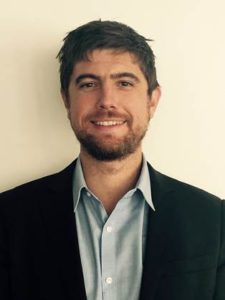
Chris has experience in a range of leadership roles in government and academia. This includes executive and management level roles in regional and rural development, community development, and land use planning and infrastructure policy across 13 years with the State Government of Victoria. He has worked as a Policy Analyst in the Regional Development and Tourism Division at the Organisation for Economic Co-operation and Development since 2015, which includes management of the Territorial Review of the Northern Sparsely Populated Areas (NSPA), the National Territorial Review of Peru, contributing to the Monitoring of Sweden, and thematic projects on Indigenous economic development, and mining and regional development. Chris’s undergraduate qualification is in urban planning (honours) and he has a PhD in regional development. He has published on these subjects in peer review journals, and has undertaken teaching and lecturing roles in public policy, regional development and economic geography including as an Adjunct Research Fellow at the School of Geography at Monash University. Chris also has experience as a consultant to the government and university sectors in Australia. Chris’s social media profiles are here: linkedin and twitter.
[ back to top ]
Early Career Plenary Speaker – Dr Skye Akbar, UniSA Business School, Australia
Applying a Mixed Methods Research Indigenist Agenda in Remote Economic Development Research
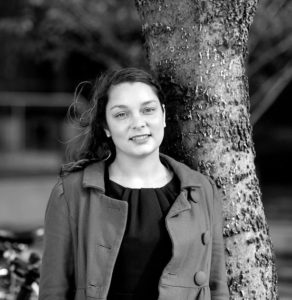
My research focuses on supporting the wellbeing of local peoples through improved understanding of how self-determined sustainable community economic development can be best achieved. An important focus of my projects is empowering people with data; My work aims to support evidence based decision making that can nurture local solutions to local problems.
[ back to top ]
Plenary: Regional Resilience and Wellbeing
Chair: Caroline Saunders, Director, Agribusiness and Economics Research Unit, Lincoln University, Aotearoa New Zealand
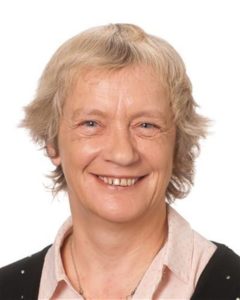
[ back to top ]
Professor Melissa Nursey-Bray, Department of Geography, Environment and Population, University of Adelaide, Australia
Connection, Country and Cassandra: Achieving Socially just Climate Governance in Urban and Regional Australia

Associate Professor Melissa Nursey-Bray is a human/cultural geographer, and Head of the Department of Geography, Environment and Population (GEP). University of Adelaide. She has worked with Indigenous communities, for government, ENGOs and as a consultant, always as an advocate for community participation in environmental management decision making. Examples include the development of community-based management plans for Indigenous country and representing conservation interests on a wide range of Ministerial Committees. As an academic she has focussed on progressing the role of participatory governance as a mechanism for advancing community involvement in decision making, particularly in the fields of climate change adaptation and marine conservation. In this capacity she has established collaborations with local governments, ports, fisheries and Indigenous peoples, to investigate how conflict, perception, and knowledge transforms and remakes contemporary governance regimes. Her current work explores the ways in which connection to nature is developed via place making in cities and how Indigenous peoples are addressing the challenges of climate change. Melissa is also a committed teacher, believing in the importance of education for sustainability: her teaching has received national recognition via an Office of Learning and Teaching Citation (OLT) for Outstanding Contribution to Student Critical Thinking about Sustainability, and in 2017, she won the University of Adelaide’s Beacon Award for Excellence in Higher Degree by Research (HDR) Supervision.
[ back to top ]
Professor Bruce Wilson, European Union Centre, RMIT, Australia
Regional Resilience and Wellbeing: the Relevance of the Sustainable Development Goals
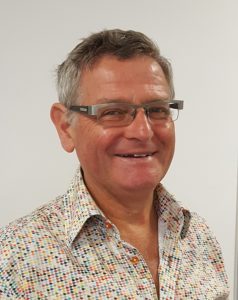
Bruce Wilson is Director of the European Union Centre at RMIT. In this role, he provides insights to and leads research and debate on EU-Australian relations, encouraging mobility for staff and students, and for building partnerships between Australian universities and organisations and their European counterparts. He also leads the Jean Monnet Centre of Excellence for Smart Specialisation and Regional Policy at RMIT, looking at interventions to improve the living and working conditions of people in metropolitan and rural city-regions in Europe, Australia and Asia. He has had long experience in working with all levels of government on organisational and social change, and is committed to linking researchers and policy makers with city and regional governments in policy formation related to social and economic policy, innovation, lifelong learning and environment. He was a founding Co-Director of Pascal International Observatory.
[ back to top ]